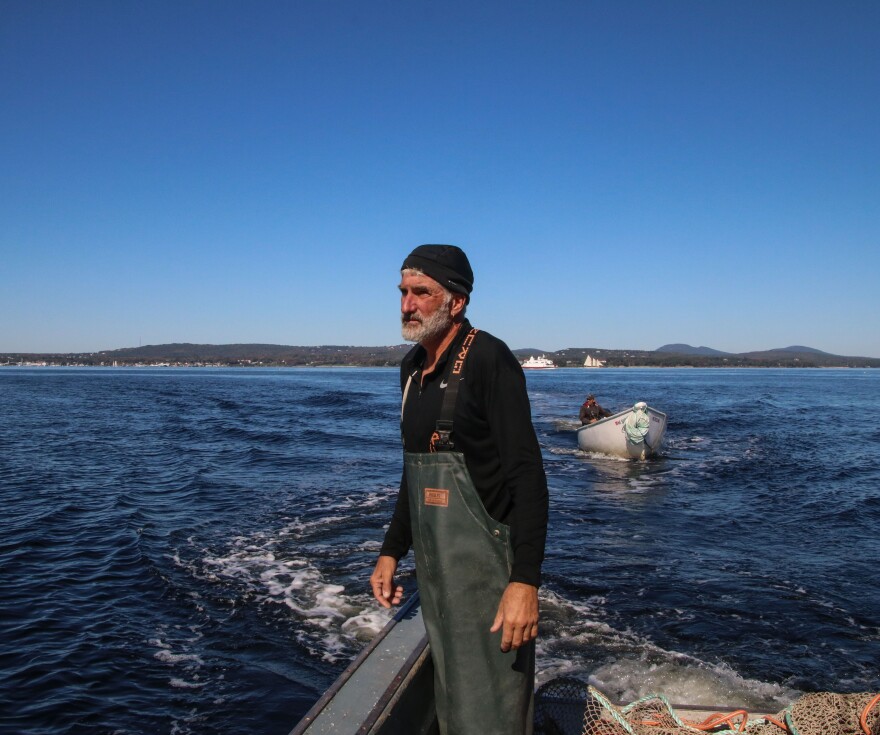Lobstering in Maine requires lots of bait, but Atlantic herring, a favored bait, are in short supply. Over the past few years, rebounding menhaden have been taking up the slack. As menhaden, better known as pogies, have returned to Maine, they are keeping fishing crews busy, and feeding large predators.
In Doug Lee’s decades on the water in Penobscot Bay, as a schooner captain and boatyard owner, he’s seen pogies come and go.
"40 years ago, when I first started here there was a fish meal plant here, right in Rockland, and it was a big pogie factory. They did things with spotter planes and brought them in by the hundreds of barrels," Lee says.

Today, Lee is fishing with a crew chasing them.

“We’re small time, to supply bait to the lobstermen, and you can only catch 17 barrels three times a week, so that’s what we do. And it’s a small net," Lee says.
Soon after the boat leaves the dock just before sunrise, crew member Doug Shartzer points out a school of fish.
“Here’s a school right there, you can see the tails splashing the surface. See that right there? That whole thing is a school of fish," Shartzer says.
The crew lets the net out and is soon winching the fish aboard. Before long, they’ve caught their 17 barrels.
Jamie Steeves, the lobster dealer who owns the boat the crew uses to catch the pogies, will sell the fish to lobstermen from the dock. Each barrel, 500 pounds of fish, will fetch about $250. And he says it’s lucky that the menhaden are coming back to Maine because the fishery for Atlantic herring has been restricted due to concerns about the population declining.

“Let’s put it this way. If we weren’t catching pogies, and I say we as a whole, the industry, all my friends, those around us, if we weren’t catching them, this industry as lobstering would be in a lot of trouble, seeing as how we can’t catch any herring," Steeves says. "And as far as hard bait coming from the west coast, they are having their own issues as far as transportation. So we’ve been very fortunate, we’ve been very lucky this year.”

The menhaden have also been a welcome boost to the many species that prey on the fish: osprey, bald eagles, seals, harbor porpoises, and even giant bluefin tuna.
Typically found offshore, some tuna have followed pogies inshore this year. A tuna was spotted earlier this year chasing pogies through waist-deep water along a beach in southern Maine. And Steeves was fishing on Ross Alex’s boat in Northport last month when they caught a 600-pound tuna in the menhaden net.
“Fishing in 15 to 20 feet of water, and came up with a tuna. And that just doesn’t happen," Steeves says. "But that just goes to show you what’s feeding on these fish, right along the shoreline, and we just don’t even realize.”
The tuna died in the net. Lacking a permit for the valuable fish, the crew arranged to donate it to the Belfast Soup Kitchen, where guests have been dining on steaks from a tuna that was fattened on menhaden.


